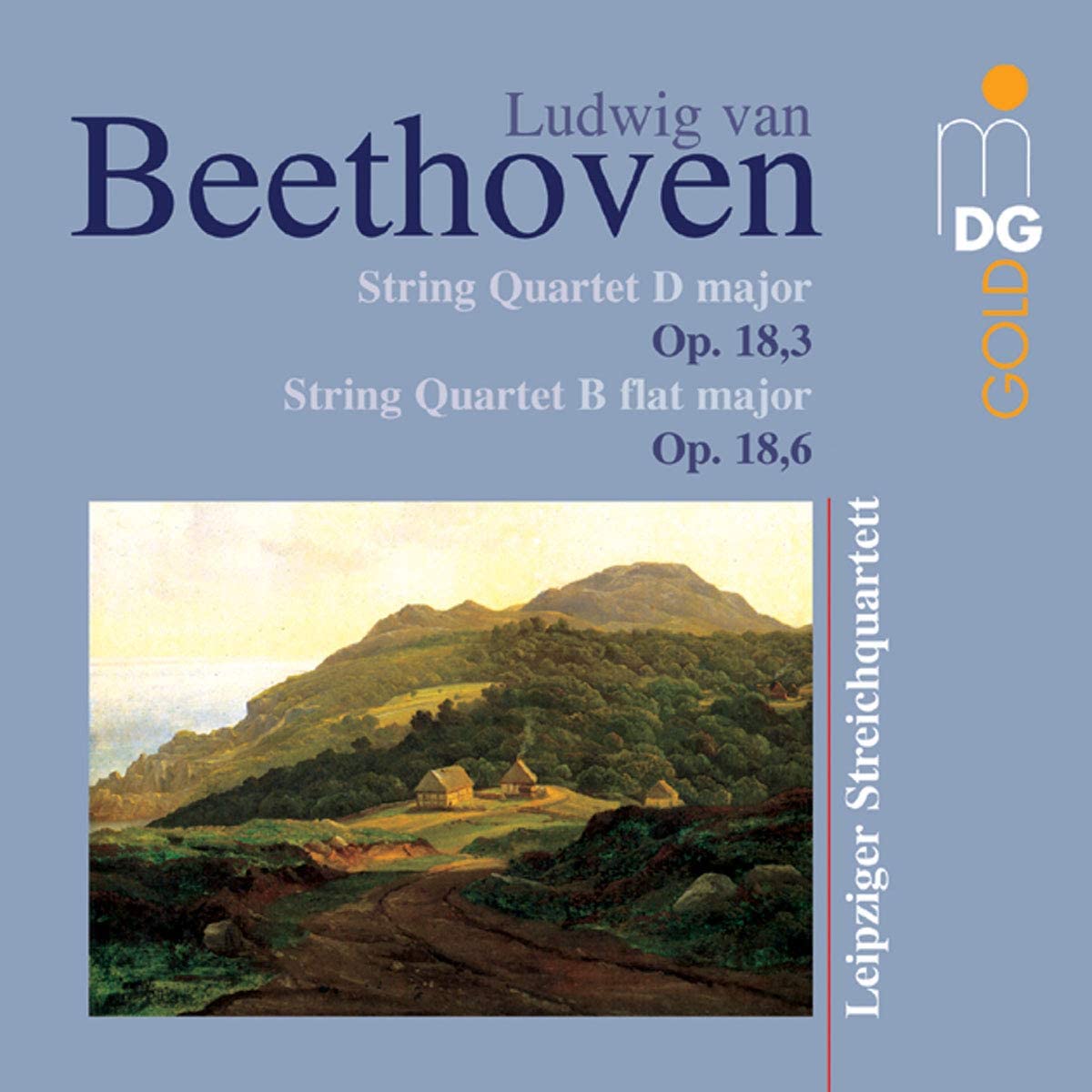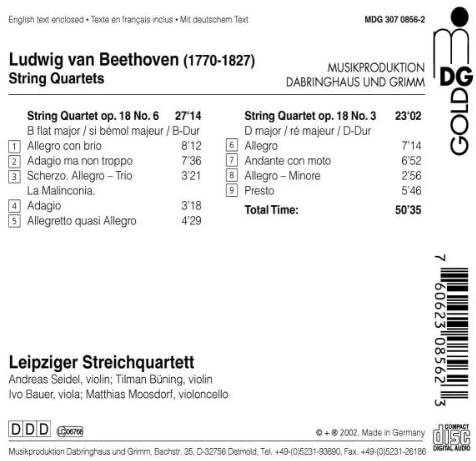
classical music distribution


(Produkt nie został jeszcze oceniony)
kompozytor
Beethoven, Ludwig van
tytuł
BEETHOVEN: String Quartets
wykonawcy
Leipziger Streichquartett
nr katalogowy
MDG 307 0856-2
opis
First signs are good. The opening movement of Op. 18/6 sets off with the speed and steely grace of a prize greyhound, and the journey never disappoints. ‘Steely grace’ would probably do as a description of the second movement, too, only now the manner begins to sound austere. The rhythmic games of the scherzo come across well. I’m not so convinced, though, by the Leipzig’s attempt to demonstrate the basic unity of conception behind the last two interlinked movements. The players take the two main tempi – Adagio and Allegretto quasi Allegro – as though they had the same basic pulse, even though Beethoven’s metronome markings indicate something rather different. It smoothes over rather than highlights the extremes of Beethoven’s mood-swings, making them less radical. This Classicising, balancing approach is more effective in Op. 18/3, though here again there’s something rather dour about the results. I think it’s worth paying a little more for the Quartetto Italiano’s mid-price set of the complete Op. 18 Quartets. Initially the players may seem more soft-centred than the Leipzig Quartet, and certainly they’re slower off the mark in Op. 18/6, but the range of expressive colour and the sense of drama of each quartet is more compelling, despite the relatively intimate manner. In their hands the ending of Op. 18/6 is enigmatic, but intriguing – you’re much more likely to want to go back and explore further. • Stephen Johnson
nośnik
CD
gatunek
Muzyka klasyczna
producent
MDG
data wydania
01-08-2002
EAN / kod kreskowy
760623085623

(Produkt nie został jeszcze oceniony)
cena 64,00 zł
lubProdukt dostepny w niewielkiej ilości.
Wysyłka w ciągu 3 dni roboczych
Darmowa wysyłka dla zamówień powyżej 300 zł!
Darmowy kurier dla zamówień powyżej 500 zł!
sprawdź koszty wysyłkiProduktu jeszcze nie zrecenzowano, chcesz być pierwszy?
Klienci, którzy kupili ten produkt, kupili również
Bacewicz, Grażyna
Bacewicz: Symphony for String Orchestra; Concerto for String Orchestra; Piano Quintet 1
8.573229
Bach, Johann Ludwig, Krebs, Johann Ludwig, Goldberg, Johann Gottlieb
Goldberg: Kantaten / Bach: Missa brevis / Krebs: Magnificat
RIC 317
Pozostałe płyty tego kompozytora
różni kompozytorzy
Messen - Mozart, Haydn, Cherubini, Beethoven, Schubert, Schumann, Kiel, Gounod, Bruckner
C 7161
Beethoven, Ludwig van
Beethoven: Complete Symphonies, Concertos & Overtures (Complete) (12-CD Box Set)
8.501204
Beethoven, Ludwig van, Schumann, Robert
Beethoven/Schubert: String Quartet Op. 131 / Quartet Movement C-Minor
MDG 307 0550-2
Pozostałe płyty tego wykonawcy
Raff, Joseph Joachim
Raff: Chamber Music Vol. 1 - String Quartets Nos. 1 & 2
MDG 307 2187-2
różni kompozytorzy
Russian String Quartets - Afanasiev, Rimsky-Korsakov, Rachmaninov, Borodin
MDG 307 1758-2
Dvorak, Antonin
Dvorak: String Quintet op. 77; String Quartet op. 96 „American“
MDG 907 1847-6
Napisz recenzję dla: BEETHOVEN: String Quartets
Zapytaj o dostępność produktu
Twoje zapytanie:
Odpowiemy na adres:
Produkt został dodany do koszyka

Beethoven, Ludwig van
BEETHOVEN: String Quartets
1 szt












































